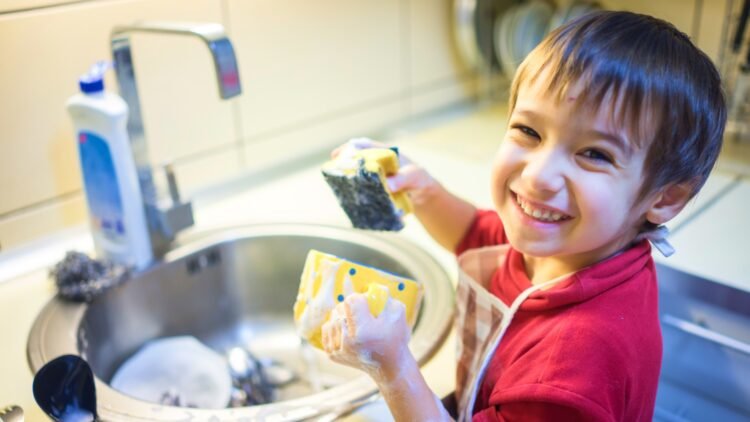Harvard Reveals: Doing Chores as a Child Leads to Lifelong Success and Fulfillment

The coffee’s hot. The house is quiet. And your 13-year-old just stepped over a mountain of laundry on his way to the couch, where he’s now doom-scrolling on the phone you pay for. Before launching the usual “Put your dishes in the sink” command, pause.
According to the longest-running study in Harvard’s history, that laundry pile is more than a mess; it’s a gateway to a better career and a happier life.
A 75-Year Clue from Harvard’s Grant Study
Since 1938, researchers have tracked hundreds of lives through Harvard’s Grant Study and its sister projects. Among the most successful participants? A surprising common thread:
They did chores as children. They chopped wood. Pulled weeds. Washed dishes. Small tasks, big outcomes.
Project director Dr. Robert Waldinger calls it “the first practical lesson our data keeps teaching.”
And Harvard isn’t alone. A study of 9,970 students in the Journal of Developmental & Behavioral Pediatrics found that children who helped at home in kindergarten were outperforming peers academically and socially by third grade, even after adjusting for family income and education.
Layer in a 2022 meta-review on executive function, and the case is even stronger: **household tasks build working memory, self-control, and planning, the very skills employers rank at the top of job ads.
Why a Sponge Beats a Screen
Chores have real stakes. Children learn how their effort fits into a team: skip the cookie sheets, and nobody gets dessert tomorrow. That builds what psychologists call “common-good orientation”, the ability to notice someone else’s workload and step up.
And grit? It starts in the kitchen sink. A child who sticks with greasy pans is more likely to stick with tough homework.
What Each Chore Teaches
- Laundry: process thinking (sort → wash → dry → fold → put away).
- Dishes: attention to detail and shared responsibility.
- Bathroom cleaning: project planning.
- Cooking & cleanup: real-world math and time management.
Skip chores, and you may raise an adult who leaves empty printer trays for “someone else.” Sociologists call it the “missing skill set.” Employers just call it frustrating.
Even If They’ll Have Staff Someday—Do the Chores Anyway
Sure, you may picture your child one day closing billion-dollar deals from a high-rise.
But don’t skip the trash run.
Real leadership is rooted in humble tasks.
Warren Buffett drives himself. Barack Obama still makes his breakfast. Teaching children to clean, cook, and contribute is how we teach them to lead without entitlement.
Forget fancy chore apps. A simple magnet chart or laminated checklist on the fridge works better and reduces nagging by half. Praise effort, not perfection. You’re not raising a maid; you’re raising someone who shows up, finishes what they start, and respects the team.
One Chore at a Time, You’re Polishing the Future
That robotics trophy may get your child the interview.
But the habit of quietly loading the dishwasher?
That’s what gets them promoted.
So slide that laundry basket across the floor. Let them scrub, sort, sweep, and simmer. Because when they do, they’re not just helping around the house, they’re building grit, empathy, and long-term success.




